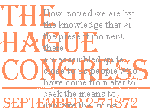
The International Workingmen's Association, 1872
Translated from the Italian: according to a photostat of the original;
Published: in La Corrisponenza di (1848-1895), Marx e Engels con italiant, Milano, 1964;
Translated: by Richard Dixon & Alex Miller, for Progress Publishers, 1976.
Transcribed: by [email protected].
Porto Maurizio, August 26, 1872
Citizen Delegates,
A young man, unknown and uneducated, but an internationalist by his principles, even before the mighty Association has laid the foundations of its organisation in Europe, dares to address himself with confidence to you, citizens, representatives of the world proletariat, to that exalted Congress to which, since it is a matter of their salvation, the eyes of all those are turned who are suffering under the yoke of a privileged caste to tell you of the miserable condition of the working class of Western Liguria, of that small but valiant nucleus of the great family of workers which the life-giving breath of the principles of the International Association has not yet been able to reach to reveal the new destinies of this poor and oppressed part of Humanity which sweats from morning till night to fatten a handful of gilded idlers.
In this province of ours, which has a population of some ten to twelve thousand workers and agricultural labourers, there are a few mutual aid societies which live a life of stagnation, evading social questions and blindly allowing themselves to be guided exclusively by the big bourgeoisie, which has made of them obedient tools bound to its will. Such a fact would seem absurd if it did not reflect the predicament in which our workers live of seeing themselves lose their job if they should raise their voice in presence of their employers to speak of the rights of those who work. And the capitalists, who are by no means ignorant of this deplorable state of affairs, profit by it to strengthen their odious moral and economic tyranny over this class of pariahs.
Thus every spark of dignity is extinguished in the hearts of the great majority of our workers, who, in order not to die of hunger, are forced to bless the hand which strikes them. Deplorable spectacle! In industrial centres of any importance the frequent strikes against the capitalist bosses at least show them that the workers are conscious of the injustice which they suffer against their will, compelled only by the imperative logic of force of this so-called constitutional society. But here all protest is ignored: here the word strike has no meaning, and, as I have said, the worker groans and is silent for he does not yet know the most elementary principles of the might created by the work of his hands or the political and social conditions of his brothers in the whole of Europe. This, and nothing else, is the only reason for his apathy, for under the blouse of our Ligurian workers beats a heart capable of giving support to the most energetic measures for the emancipation of their destitute class.
With such a state of affairs the wages of the workers are so low that they are insufficient for their subsistence. Two examples suffice to demonstrate the truth of this assertion. Shoemakers, though they work 12-14 hours a day, do not earn ten lire in a week!
I shall not speak of the peasants who sweat from dawn till sunset over their plots rented from the rich landowners like helots tied to the land and cannot earn more than one lira and twenty centesimi a day!
Such, briefly, citizens, is the miserable condition of the workers of Liguria: may the great International Association cast its eye on the unfortunate land, may its teachings break through the darkness to shed a ray of hope in the hearts of our suffering workers.
Porto Maurizio, the seat of a Royal Prefect and the capital of the province of the same name, is the most important city in Western Liguria, and has the most favourable conditions for becoming the leading centre of the Ligurian workers' movement. The undersigned, penetrated with these principles, has already gathered a phalanx of workers in all trades round the banner of the disinherited people to establish a section of the great Association and requests Citizen Karl Marx, the General Secretary, to represent it at the General Congress.
Confident that you, illustrious citizens, will give due consideration to this information and will see fit to remember and make note of the nucleus of workers of the New Faith in this city, entering into direct correspondence with it and acknowledging receipt of this communication, we ask you for the time being to accept a handshake and a fraternal greeting.
To the exalted representatives of world proletariat at The Hague.
For the section of the International in formation,
the delegate
Ricci Filippo
Submitted to the Congress at the fourth sitting,
September 3, 1872